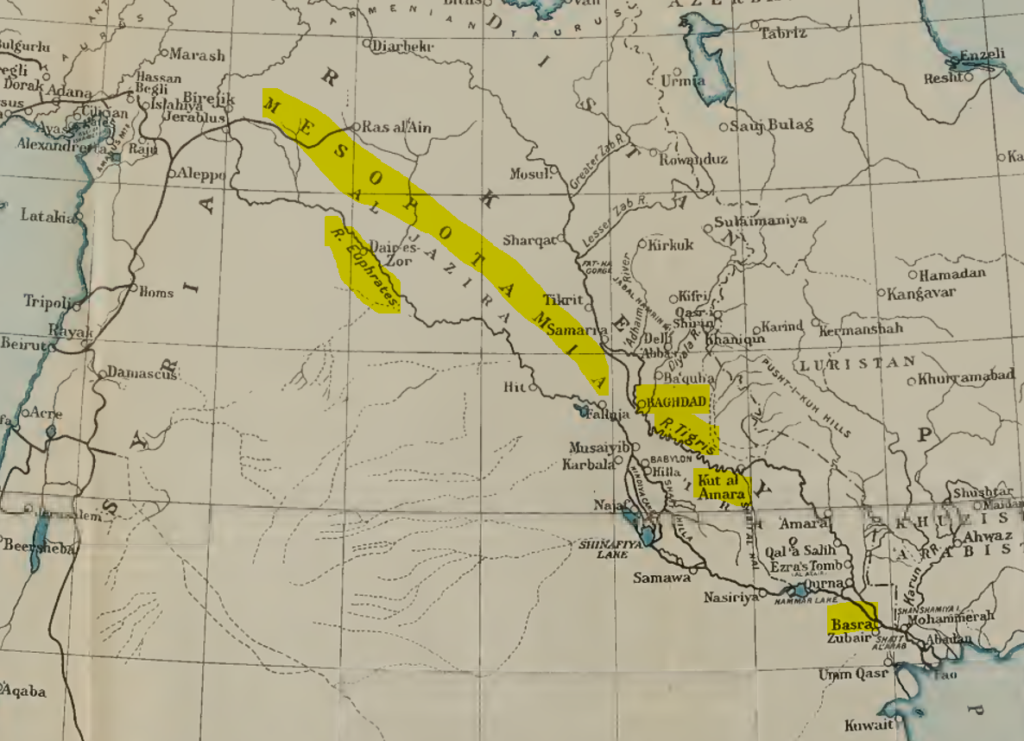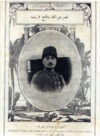Historians admit that the siege of Kut Amara was the greatest humiliation to have befallen the British army in its history.[i]
In the words of Mary Russell, “To the British army in Mesopotamia, the ending of the five-month siege of Kut, which started in December 1915, was a dismal and humiliating failure”.[ii]
And, this, at the hands of the Ottoman Turks, who had sided with the losing Germans. The year was 1915, and it was a year since the WWI had begun. It was one of the worst period in the glorious history of the Ottomans who had ruled for over 600 years—surpassing the Sassanids and the Romans. The beginning of the 20th century witnessed Ottoman Turkey in deep economic woes and internal strife manipulated by Western and Zionist conspirators.
The surrender of approximately 13,000 British soldiers after 147 days of siege was the worst surrender in the history of the British army up to that point, and a great victory for the Ottomans. However, the Siege of Kut al-Amara between 3 December 1915 and 29 April 1916 is an episode that seems to have been glossed over by many, perhaps, since the Western historians did not want to make widely known the humiliation a leading Western power had to face, and credit the victory to a people whom they despised.
Kut al Amara is located on the Tigris river, south of Baghdad.

After 147 days of siege, the commander of the British forces, General Townshend was authorized to enter into negotiations for surrender. During negotiations, Townshend, and later Thomas Edward Lawrence (1888-1935) and Aubrey Herbert (1880-1923) of the Arab Bureau, tried to bribe the Ottoman commander Halil Pasha to allow their forces to flee; they offered first one million (and then two million) pounds, but to no avail. On 29 April 1916, Townshend, left with no other alternative, surrendered his force of 13,309 men, consisting of 277 British officers, 204 Indian officers, 2,592 British soldiers, 6,988 Indian soldiers, and 3,248 Indian support staff.[iii] On 2 May 1916, 1,306 sick or wounded soldiers were allowed to leave aboard British medical ships, together with 694 nursing and support staff to tend them.
This was a great victory for the Ottomans. In Halil’s words, it was a Turkish victory “the likes of which hadn’t been seen for 200 years”.[iv] And it was as great a defeat for the British Empire.
Victory Without Ataturk

It is interesting to note that Kemal Ataturk was not involved in the battle. Those who credit Ataturk with the victories over the Allied forces and thus try to idolize him, never mention about this singular and convincing victory of the Ottoman soldiers under the command of Halil Pasha.
Loyalty of Indian Muslims to the Ottomans
Another fact that needs mention here is the desertions among the British Indian troops. Muslim soldiers conscripted in the British army were never told that they were to fight the Ottomans, whose leader, the Caliph, was their caliph as well. However, when they faced the reality, some of the troops, with great risk to their lives, deserted the British army and crossed over to the side of the Ottomans. However, a majority of those who dared to change sides were Pathans from the North Western Frontier, an area where the writ of the British did not extend. The Muslim troops from other provinces were threatened that their properties back home would be confiscated, and they would be declared outlaws in their town[v]. Unable to muster courage to desert in the face of such pressure, some of these Muslim soldiers resorted to inflicting injuries on themselves so that they could avoid being sent to face the Ottomans in the frontline.
Despite the summary court-martials in which some unsuccessful deserters were caught and killed by firing squads, and the aforesaid threats, a total of 146 Indian sepoys successfully deserted during the siege of Kut, according to Nikolas Gardner in his book, Sepoys and the Siege of Kut-Al-Amara
BBC Voices of the First World War on Kut
BBC has published a series of audio recordings titled Voices of the First World War,[vi] containing the first-hand accounts of the War Survivors of the First World War drawing on the sound archives of the Imperial War Museums and the BBC. Two of these ‘episodes’ are dedicated to the siege and surrender of the Anglo-Indian forces in Kut. The first is titled, Kut: Sand, Mud, Mirage[vii] whichrecalls the siege of Kut-Al-Amara;and the other: After Kut[viii], which looks at the varying treatment of British and Indian soldiers after the surrender to the Ottoman Army at Kut-Al-Amara.
The first audio records the reasons for the humiliating surrender. First hand accounts also acknowledge “a very well-disciplined Turkish regiment came in. They never looted anything from anybody.”
The Lawrence of Arabia Few Knew
Among the few movies I watched more than once was Lawrence of Arabia. The cinematography was excellent and the story was compelling. Peter O’Toole played the role of TE Lawrence to perfection. But, there were many inaccuracies in the film, and have been pointed out by Western writers themselves. However, a major failure of this so-called genius which is less known is his failure in negotiating an honourable exit for the British forces under siege at Kut.
“At dawn on April 29th, 1916, two lower-rank intelligence officers left the town of Kut and walked across the muddied battle field to the Ottoman trenches, the white flag of surrender carried by one of them – TE Lawrence”. (Mary Russell)
Interestingly, The Guardian[ix], referring to the British invasion of Iraq during the WWI, calls it a previous attempt at ‘regime change’.
There are so many lessons to be learnt from
history. For those who will take heed.
[i] https://www.firstworldwar.com/battles/siegeofkut.htm
[ii] An Irishwoman’s Diary on the Siege of Kut – a defeat for the British and a victory for the Ottoman Turks, The Irish Times, April 25, 2016
[iii] International Encyclopaedia of the First World War
[iv] https://encyclopedia.1914-1918-online.net/article/kut_al-amara
[v] Nikolas Gardne, Sepoys and the Siege of Kut-Al-Amara, page 320
[vi] https://www.bbc.co.uk/programmes/b03t7p9l
[vii] https://www.bbc.co.uk/programmes/b06kngpq
[viii] https://www.bbc.co.uk/programmes/b082kdp2
[ix] The Guardian, The Tragedy of Kut, 20 November, 2002.

Leave A Comment